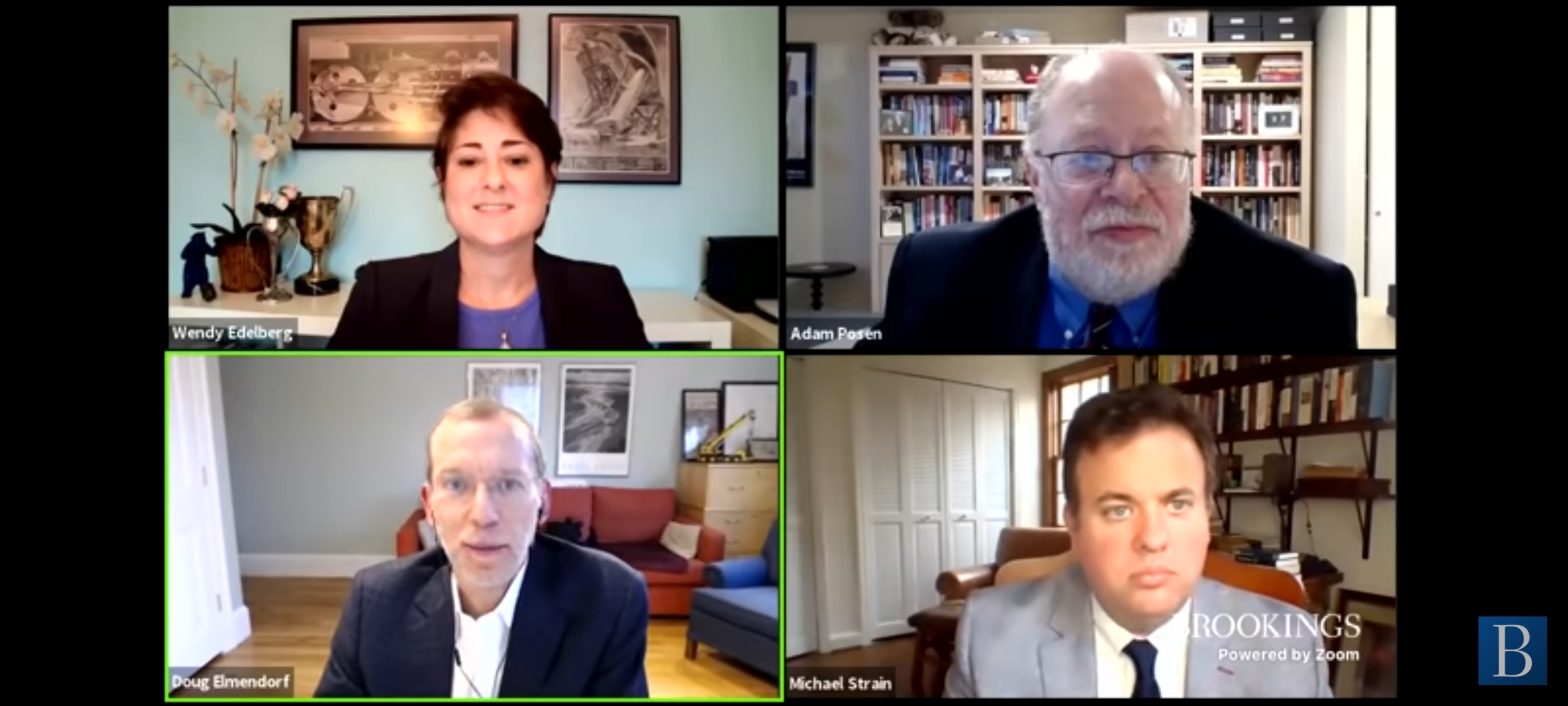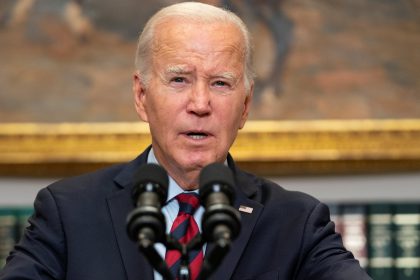Experts Lend Advice on COVID Relief Policy for Biden Administration, New Congress

In a virtual roundtable event co-hosted Tuesday by the Hutchins Center on Fiscal & Monetary Policy and the Peterson Institute for International Economics, economists discussed what economic policies should be prioritized by the in-coming Biden Administration and Congress.
The panelists who participated in the event, presented by the Brookings Institution, were comprised of fiscal and public policy experts.
Wendy Edelberg, senior fellow of Economic Studies at Brookings, Douglas Elmendorf, Don K. Price professor of Public Policy and dean of faculty at Harvard University’s Kennedy School and Michael Strain, director and Arthur F. Burns scholar in Political Economy at the American Enterprise Institute, talked about potential fiscal policy for short-term relief.
Despite stimulative gains following the 2008 economic recession, Elmendorf said subsequent regressions constrained growth in following years.
“That premature tightening of fiscal policy was one of the greatest mistakes in macroeconomic policy of the past half-century, in my view,” Elmendorf said at the event. “I am afraid that we are on the cusp of making a similar mistake again. We should at this point go fast and go big.”
Time is an important factor when discussing economic relief solutions, he said. Millions of Americans stand on the precipice of losing unemployment insurance benefits without corrective action taken by the legislature.
Under the CARES Act, states were given the option to extend unemployment compensation to independent contractors and other laborers that are usually ineligible for unemployment benefits, according to the Department of Labor. Pandemic unemployment insurance provides up to 39 weeks of benefits and the program’s enrollment period ends Dec. 31.
“There are back-of-the-envelope calculations I’ve seen suggesting that a trillion dollars of fiscal stimulus might be enough,” he said. “Other calculations show — in my view — $2 trillion would be a more appropriate amount of stimulus. The point I want to emphasize is that we’d be much better off airing on the big-side than the small-side of fiscal stimulus.”
In comparison, the CARES Act allotted $1.8 trillion in direct economic relief to individuals and businesses, according to the Heritage Foundation. Across three separate coronavirus-relief packages passed by Congress and signed into law by President Donald Trump, more than $2 trillion in federal spending has been allotted to COVID-19 relief measures — more than any other stimulus package in United States history.
Because of the “inexact” nature of macroeconomic forecasting, Elmendorf said large-scale stimulus measures present smaller risks than small-scale measures. If demand for goods and services becomes too high, the Federal Reserve can act to remedy this by raising interest rates or withdrawing from other attempts of economic remedy.
In contrast, Strain noted smaller-scale economic stimulus measures were more likely to pass through Congress quickly. With the optimal size of any potential coronavirus-relief remaining ambiguous, Strain said lawmakers should come to a compromise that can be enacted with haste.
“I would rather see something that’s a little bit smaller but that could pass this week or next week, rather than wait for something that’s a little bit bigger but won’t pass until February,” Strain said during the event. “If you look at the output gap, I think a trillion dollars is a reasonable figure for the next round of stimulus. I think Democrats should be willing to take a couple hundred billion dollars less than that, Republicans should be willing to take a couple hundred billion dollars more than that.”
Although the amount of relief remains a point of contention on Capitol Hill, Edelberg said Congress needs to act soon one way or another. Retaining unemployment benefits established by earlier relief measures needs to be prioritized in any compromise bill passed by the legislature.
These benefits were provided by a provision of the CARES Act known as the Pandemic Emergency Unemployment Compensation program, according to the Department of Labor. Under this program, states are permitted to extend unemployment benefits by up to 13 weeks if a worker’s regular unemployment compensation benefits were exhausted.
“I am in a state of near-panic about the lapsing of unemployment insurance benefits that according to Department of Labor numbers could mean that for upwards of nine million people on December 26th they abruptly lose all of their unemployment insurance benefits,” Edelberg said during the event.
























